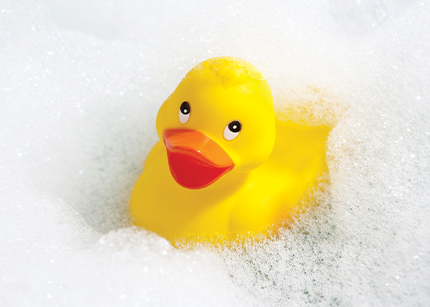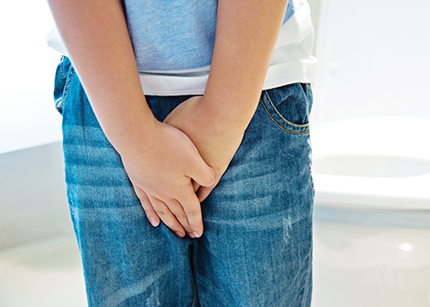

fact or fiction:
Bubble Baths
cause UTIs
Generations of pediatricians have advised parents to avoid the use of bubble baths in order to prevent urinary tract infections (UTIs). But studies have found little evidence to support this. However, research has shown that bubble baths, any kind of strong soap, or even soapy water, may irritate the opening of a child’s urethra—which is the tube that carries urine out of the body from the bladder. If the urethra becomes irritated, the child may find it painful to urinate and may hold in their urine. This can cause bacteria to grow and lead to a UTI. If your child already has a UTI or inflammation around the urethra, it may be a good idea to avoid bubble baths.


fact or fiction:
Holding in Urine
too Long Causes
Bladder Problems
If you have to urinate, find a bathroom. Holding in urine and not emptying your bladder when “it’s ready” can cause a variety of problems. For instance, holding urine longer can increase your risk of a UTI due to bacteria build-up. Holding your urine for too long can also change, over time, your bladder muscle. This can lead to incontinence or not being able fully empty your bladder. Holding urine to excess, can even be a risk factor for kidney damage. In rare circumstances, holding your urine for too long can lead to a burst bladder, which can be a very serious event.


fact or fiction:
Corrective Treatment
for Urethral Stricture
is Always Needed
Urethral stricture is an abnormal narrowing of the urethra. Urethral stricture may be caused by swelling or scar tissue from surgery. It most commonly occurs after an infection or injury. A classic example of such injury would be a bicycle injury when a person slips and strikes his “saddle area” (called perineum) on the bike’s cross bar. Ouch!
Treatment for urethral strictures depends on where they occur, what symptoms they cause and a person’s overall health. If you do not have significant symptoms, your urologist may recommend active surveillance, also called “watchful waiting,” to see whether it heals. Your doctor will closely monitor the stricture to see if active treatment is needed.

UrologyHealth.org | SUMMER 2020 | UROLOGYHEALTH extra